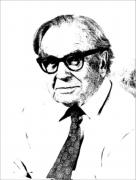|
|
||||||||||||||||||||||||
 |
Featured person
Recently added |
Sir Ian Fraser (1901 - 1999): |
||||||||||||||||||||||

|
| Sir Ian Fraser |
Ian Fraser was born, on 9 February 1901, on the Albertbridge Road in Belfast, son of a GP, and educated in the city, at RBAI and Queen's University where he graduated MB, BCH, BAO in 1923 having obtained First Class Honours and come first in all his subjects, winning numerous prizes. The same year, he was appointed resident house surgeon, house physician and extern surgeon at the Royal Victoria Hospital, Belfast. In 1927, he was appointed honorary attending surgeon at the then Belfast Hospital for Sick Children in Queen Street, later to become the Royal Belfast Hospital for Sick Children. He would hold an appointment there until his retirement in 1966. In 1926 he obtained the degree of MCh from Queen's University, and was appointed Fellow of the Royal College of Surgeons in Ireland. The following year he was appointed to the English equivalent, and graduated MD of Queen's with commendation in 1932. In 1938 he was elected Fellow of the Royal Society of Edinburgh, by which time he had undertaken postgraduate study in London, Paris and Vienna, and published nearly thirty articles in leading surgical journals. By 1994 this total would have risen to eighty.
Fraser served throughout the Second World War in the Royal Army Medical Corps. Appointed Lieutenant-Colonel, he was in charge of the Surgical Division of the 37th General Hospital, running a 1000-bed hospital at Accra, on the Gold Coast, and in 1942 was promoted full Colonel on his appointment as consulting surgeon to the West Africa Command.
In early 1943 Fraser was contacted by Howard Florey and Ernst Chain, who would be awarded the Nobel Prize in Physiology or Medicine jointly with Sir Alexander Fleming in 1945, for the discovery of penicillin and its curative effect in various infectious diseases. Fraser was asked to set up and direct a research team to carry out a pioneering study of the effects of penicillin on trauma cases in the battlefield. After trials in England Fraser's team travelled to the North African and later Italian theatres of war, where he frequently performed operations just behind battle lines, on one occasion for 48 hours without a break. He was involved in landings at Cape Passero and Catania in Sicily, and Reggio di Calabria and Salerno on the Italian mainland.
In January 1944, he was awarded the DSO, not merely for "gallant, fearless and devoted action" during the Sicily landings, but also for the development of "a new technique employed for the first time in forward surgery" which had "established a new and most valuable wound treatment". In March 1944 he was acting consultant surgeon to Eastern Command in preparation for the Normandy invasion of June 1944, in which he took part, landing at Arromanches two days after D-Day, and setting up advance surgical stations of the 108th General Hospital at Bayeux. In October 1944 he was appointed consultant surgeon to Central Command, Agra, India, and promoted Brigadier.
He returned to his former post in Belfast, at the Children's Hospital, in September 1945 and was appointed to the staff of the Royal Victoria Hospital and was designated consultant in the new NHS in 1948.
He had a decades-long association with the St John's Ambulance Brigade, which he first joined in 1931 as Divisional Surgeon and honorary secretary to the Belfast Division; he would attend meetings of the organisation until he was 94. From 1932-1939 he was District Commissioner for Northern Ireland, during which time the Brigade expanded from 3 divisions (138 members) to 63 divisions (1,944). 1940 he was awarded the OBE for services to the Brigade, of which he became Bailiff Grand Cross in 1974 and Knight Commander in 1979.
Fraser received a considerable number of awards and honours. He was appointed honorary Fellow of the American College of Surgeons in 1941, Surgeon-in-Ordinary to the Governor of Northern Ireland, and Honorary Colonel, No 4 British General Hospital (TA). Along with several honorary degrees he was also a Chevalier de Légion d'honneur in France, and was admitted to the Belgian Ordre de la Couronne and the Dutch Ordre van Oranje-Nassau. He served on the Senate of Queen's University from 1961 to 1991, was President of the Royal College of Surgeons in Ireland 1954-56, and was President of the British Medical Association 1962-1963 and was a frequent external examiner and guest lecturer. In 1963 he was knighted for services to medicine. Fraser died at his home in Belfast on 11 May 1999.
The Sir Ian Fraser Theatre at the Royal Victoria Hospital was named for him in 1982. His portrait by Carol Graham is on display in the Great Hall, Queen's University, Belfast.
| Born: | 9 February 1901 |
| Died: | 11 May 1999 |
| Richard Froggatt |
| Acknowledgements: Wesley McCann |


Home | Our Policies | Plaques | Browse | Search | Sponsors | Links | Help | Contact
Privacy & Disclaimer | Cookie Policy | Site Map | Website Design By K-Point
© 2024 Ulster History Circle









